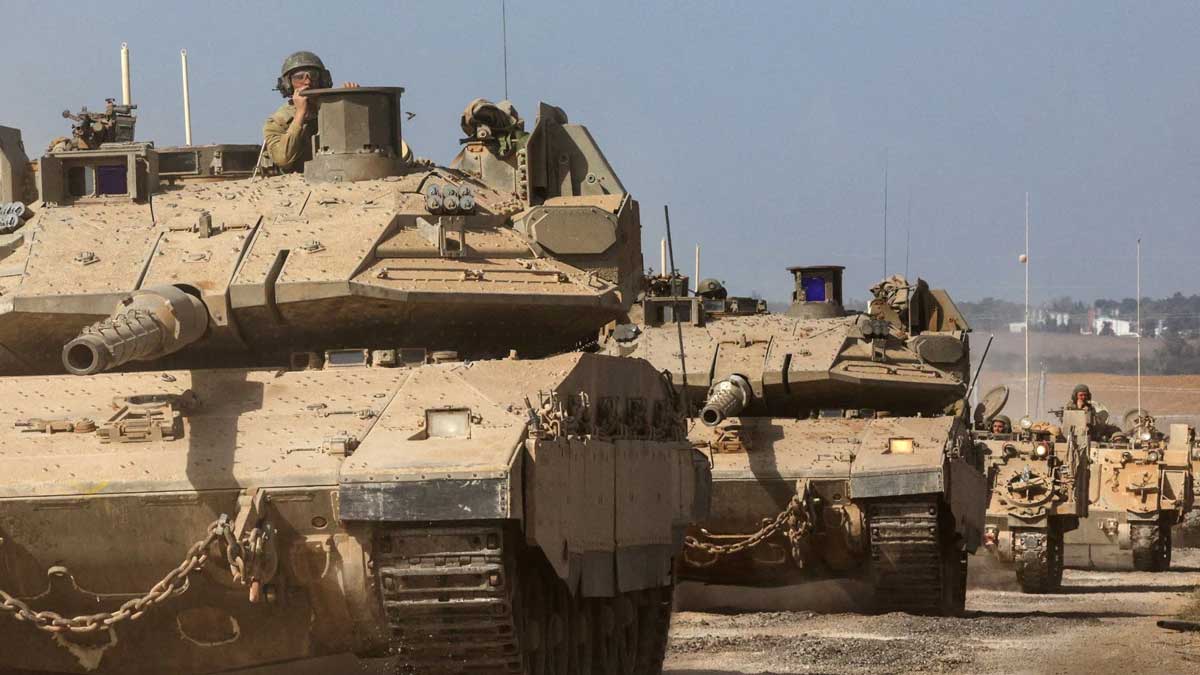- Home
- Billionaires
- Investing Newsletters
- 193CC 1000
- Article Layout 2
- Article Layout 3
- Article Layout 4
- Article Layout 5
- Article Layout 6
- Article Layout 7
- Article Layout 8
- Article Layout 9
- Article Layout 10
- Article Layout 11
- Article Layout 12
- Article Layout 13
- Article Layout 14
- Article Sidebar
- Post Format
- pages
- Archive Layouts
- Post Gallery
- Post Video Background
- Post Review
- Sponsored Post
- Leadership
- Business
- Money
- Small Business
- Innovation
- Shop
Recent Posts
Israeli Forces Seize Rafah Border Crossing Amid Offensive

In a significant military maneuver, the Israeli Defense Forces (IDF) have announced the capture of the Rafah border crossing, the crucial gateway between Gaza and Egypt. This operation unfolded during the early hours of Tuesday following a vigorous overnight offensive. The timing of this incursion is notable, coming shortly after Israel dismissed a cease-fire proposition brokered by Egypt and Qatar, pledging to persist with its military campaign.
The IDF’s official statement regarding the operation emphasized its precision, characterizing it as a targeted strike aimed at dismantling Hamas and its infrastructure concentrated in specific sectors of eastern Rafah. Israeli forces have asserted what they term as “operational control” over the Gazan side of the Rafah crossing, alleging its exploitation for nefarious “terrorist purposes.”
In the course of this operation, the IDF claims to have neutralized 20 Hamas operatives and uncovered three underground tunnels in the vicinity. Additionally, Israeli troops reportedly seized a segment of the Salah a-Din road, a vital thoroughfare traversing the Gaza Strip, effectively isolating it from the border crossing.
Confirmation of the IDF’s control over the Rafah crossing was corroborated by Wael Abu Omer, the communications director for the crossing under Hamas administration. Omer’s account, supported by visual evidence, depicts Israeli military presence at the crossing, underscoring its capture. He further highlighted the crossing’s non-operational status since Monday afternoon, attributing this to the ongoing military offensive and the cessation of humanitarian aid flow from the Egyptian side.
The implications of this strategic move by Israel remain ambiguous, with official statements suggesting it as a targeted operation rather than a prelude to a full-scale ground incursion into Rafah. However, international observers, including allies like the United States, have expressed concerns and cautioned against a broader military escalation.
Despite international pressure and the cease-fire proposal, Israel appears resolute in its intent to press forward into Rafah, which it identifies as the final bastion of Hamas control in Gaza. Prime Minister Benjamin Netanyahu’s administration has unanimously endorsed the continuation of the Rafah operation, citing the need to exert military pressure on Hamas to secure the release of hostages and other war objectives.
In a rare move of dissent, the Biden administration has publicly rebuked Israel’s offensive, warning of its potential to exacerbate the plight of Palestinians. This stance was underscored by the reported halt of a planned sale of 6,500 precision-guided bombs to Israel by the United States, indicating a firm stance against the military escalation in Rafah.
Recent Posts
Categories
- 193cc Digital Assets2
- 5G1
- Aerospace & Defense46
- AI37
- Arts3
- Banking & Insurance11
- Big Data3
- Billionaires449
- Boats & Planes1
- Business328
- Careers13
- Cars & Bikes76
- CEO Network1
- CFO Network17
- CHRO Network1
- CIO Network1
- Cloud10
- CMO Network18
- Commercial Real Estate7
- Consultant1
- Consumer Tech180
- CxO1
- Cybersecurity68
- Dining1
- Diversity, Equity & Inclusion4
- Education7
- Energy8
- Enterprise Tech29
- Events11
- Fintech1
- Food & Drink2
- Franchises1
- Freelance1
- Future Of Work2
- Games141
- GIG1
- Healthcare78
- Hollywood & Entertainment186
- Houses1
- Innovation42
- Investing2
- Investing Newsletters4
- Leadership65
- Lifestyle11
- Manufacturing1
- Markets20
- Media193
- Mobile phone1
- Money13
- Personal Finance2
- Policy567
- Real Estate1
- Research6
- Retail1
- Retirement1
- Small Business1
- SportsMoney33
- Style & Beauty1
- Success Income1
- Taxes2
- Travel10
- Uncategorized8
- Vices1
- Watches & Jewelry2
- world's billionaires418
Related Articles
Trump Moves $4B Stake in Truth Social Parent, Stock Drops 6%
Donald Trump recently transferred his 57% stake in Trump Media & Technology...
By 193cc Agency CouncilDecember 20, 2024House Rejects Trump-Backed Funding Bill, Shutdown Looms
The U.S. House of Representatives rejected a new government funding bill on...
By 193cc Agency CouncilDecember 20, 2024Trump Named Time’s Person of the Year for Second Time
On Thursday, Time magazine honored Donald Trump as its “Person of the...
By 193cc Agency CouncilDecember 12, 2024Meta Donates $1 Million to Trump’s Inaugural Fund
Meta, the parent company of Facebook and Instagram, has confirmed a $1...
By 193cc Agency CouncilDecember 12, 2024















Leave a comment